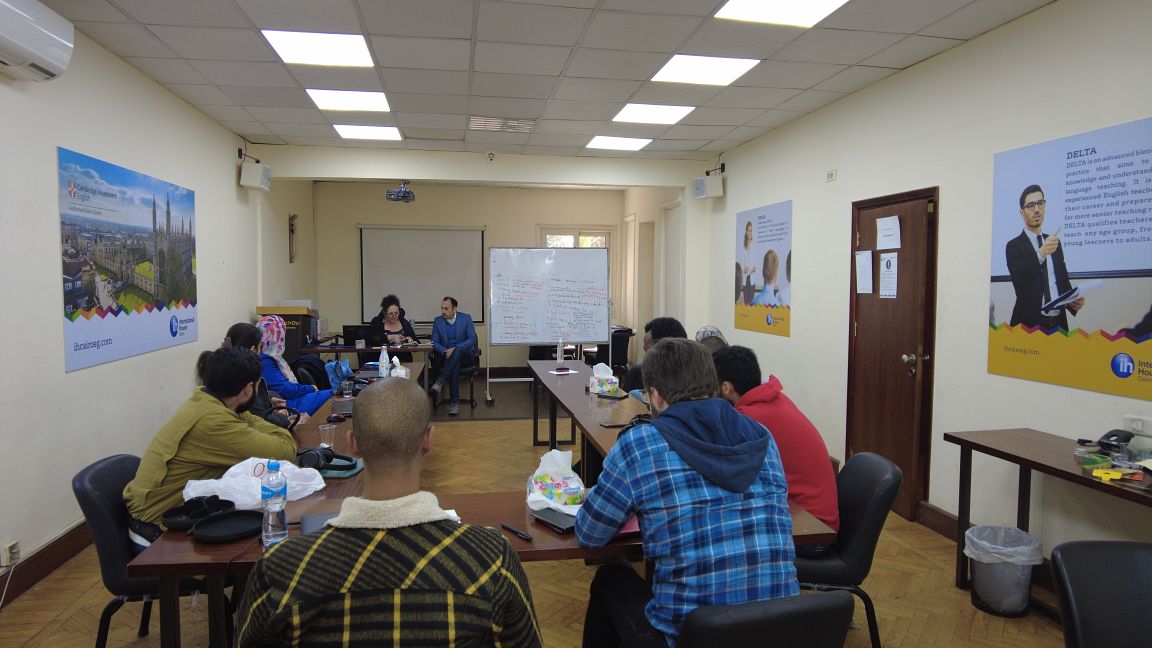Advanced Phonetics and Phonology
About the course
he Advanced Phonetics and Phonology is a 30-hour course that provides an in-depth exploration of the principles and mechanics of speech sounds in the English language.
Through a comprehensive series of lectures, discussions, and practical exercises, students will develop a solid understanding of segmental and suprasegmental features of phonetics
and phonology. Additionally, the course emphasizes the application of this knowledge to effective pronunciation teaching techniques.
Sessions Schedule
- Day 1
- Day 2
- Day 3
- Day 4
- Day 5
- Day 6
- Day 7
- Day 8
- GTKY and an introduction to phonetics and phonology. (2 hours)
- Segmental phonology : how the speech organs work in English. (2 hours)
- English consonants stops, fricatives, affricates, nasals, liquids, and glides. (2 hours)
- English Vowels : long and short vowels. (2 hours)
- Transcription rules and exercises. (2 hours)
- Syllable stress- Complex word stress. (2 hours)
- Exam 1 (2 hours)
- Suprasegmental features: Rhythm and intonation 1 (2 hours)
- Intonation 2 (2 hours)
- Connected speech features 1 (2 hours)
- Connected speech features 2 (2 hours)
- How to teach pronunciation: identifying Ss’ problems and different approaches (2 hours)
- Pronunciation Demo and analysis (2 hours)
- Ideas for teaching vowels, consonants and connected speech. (2 hours)
Exam 2
2 hours
How long is the course?
4 weeks, twice a week, 4 hours each
Delivered online and face-to-face
What does the course include?
- Input sessions
- practice.

Who is the course for?
ESL/EFL Teachers:
Teachers who work with English language learners, whether in an English as a Second Language (ESL) or English as a Foreign Language (EFL) context, can gain valuable insights from an advanced phonology course. It equips them with the necessary knowledge and strategies to effectively teach pronunciation and address common pronunciation difficulties faced by learners.
Pronunciation Coaches:
Professionals who specialize in teaching pronunciation, accent reduction, or speech training can benefit from an advanced phonology course. It provides them with advanced theoretical knowledge and practical techniques to analyze learners' pronunciation patterns, design targeted exercises, and provide effective feedback.
Language Program Coordinators:
Coordinators or administrators responsible for designing language programs or curricula can benefit from an advanced phonology course. It enables them to make informed decisions about incorporating pronunciation instruction into the curriculum, selecting appropriate materials, and providing support to language teachers.
Monday & Thursday from 6 p.m. to 10 p.m.
- 5th August 2024 to 29th August 2024
Course Calendar
Course Duration
4 Weeks
Course Schedule
2 sessions/week
Session Duration
4 Hours/session
Course Mode
Online & Face to face
Course Fees
Elevate your expertise with Advanced Phonetics and Phonology program.
Choose from multiple payment options to suit your convenience:
$150
For our valued participants in Egypt, an exclusive option to pay 7000 EGP.
Course Objectives
By the end of course the students will have:
- Develop a comprehensive understanding of the principles and theories of phonetics and phonology.
- Gain knowledge of the speech organs and their functions in producing English sounds.
- Identify, classify, and articulate the various consonant and vowel sounds in English.
- Acquire proficiency in using the International Phonetic Alphabet (IPA) for accurate phonetic transcription.
- Analyze and interpret syllable stress patterns and complex word stress in English.
- Explore and comprehend the suprasegmental features of speech, including rhythm and intonation.
- Understand the impact of intonation on meaning and communicative effectiveness in spoken English.
- Identify and analyze connected speech features, such as assimilation, elision, liaison, coarticulation, and reduction.
- Develop skills in identifying and addressing pronunciation issues in English language learners.
- Learn effective instructional techniques and approaches for teaching pronunciation.
- Demonstrate the ability to apply phonetic and phonological knowledge in practical teaching contexts.
- Enhance overall listening and speaking skills through increased awareness and accuracy in pronunciation.
- Engage in critical thinking and analysis of phonetic and phonological phenomena in spoken English.
- Work collaboratively with peers to practice and apply acquired phonetic and phonological skills.
- Demonstrate proficiency in phonetic transcription and pronunciation through examinations and assessments.
Course Content
How will course participants be assessed?
Along with continuous assessment throughout the course, an end of course test will be conducted and they will be given individual feedback along with an action plan for things to work on.
This is a 30-hour course. By the end of the 30 hours, course participants will receive a certificate of achievement from IH Cairo.


